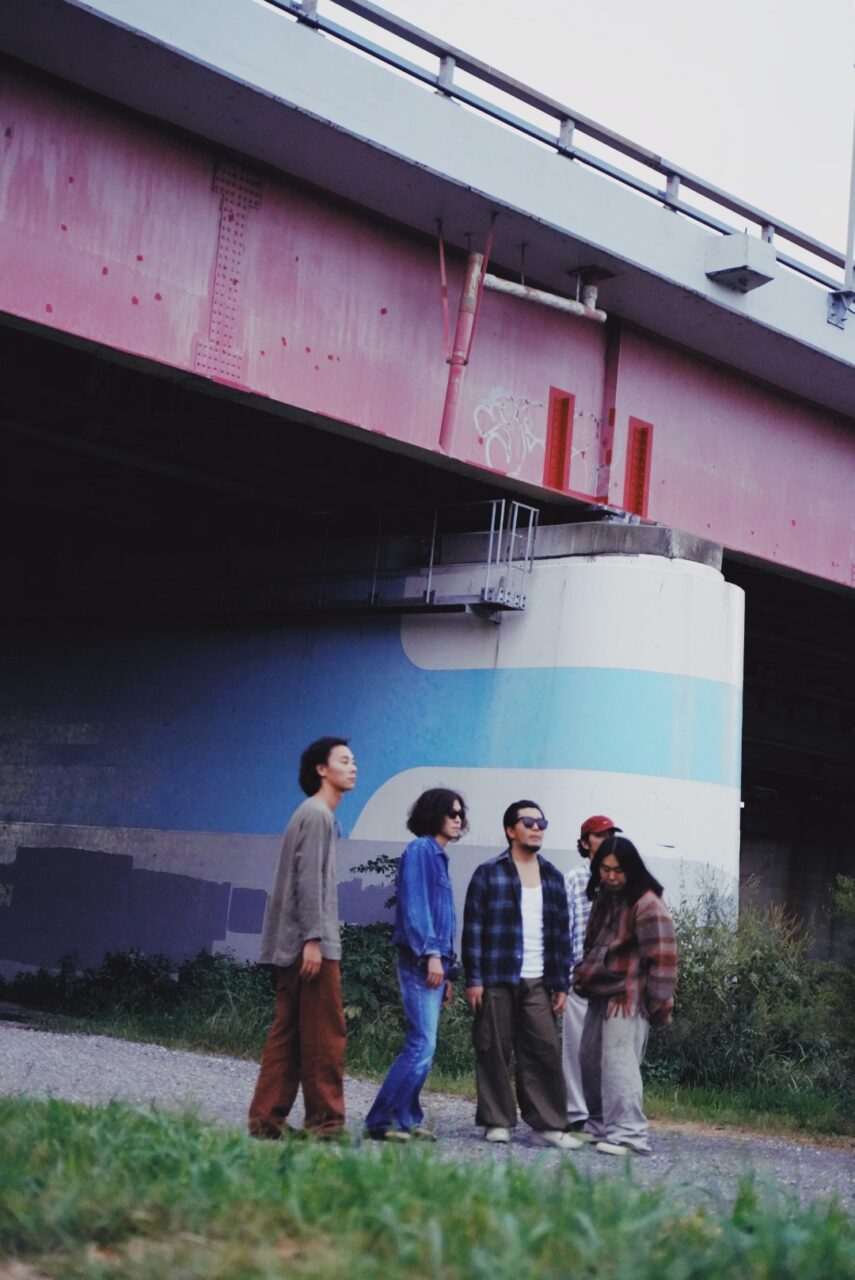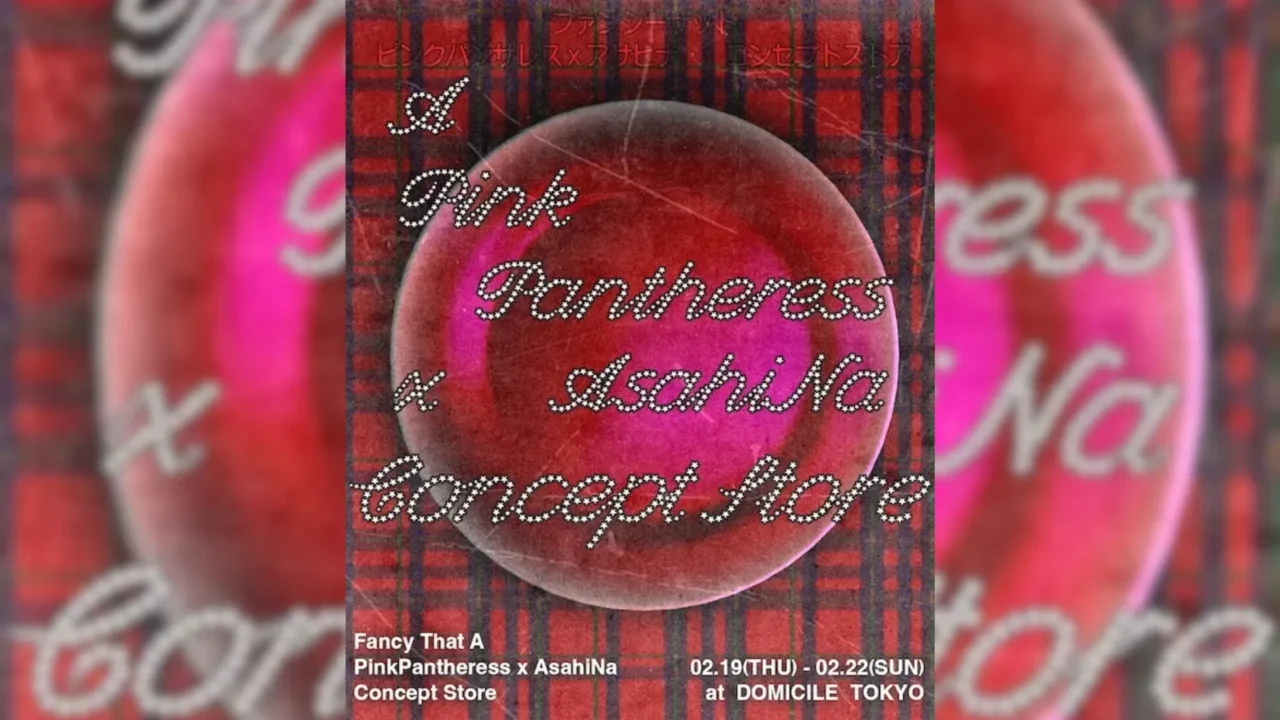INDEX
Band: A Relationship of Complementing Strengths and Weaknesses
“Did you make any specific changes in your production or recording approach for this album compared to the previous one, especially in terms of packaging the time spent with the five of you and making a work that reveals everyone’s organs and arms? For example, in the previous album, ‘敗北の作法’ was edited by Honmura after recording and completed as a collage-style sound, but all 10 tracks on this new album are finished as full band sounds.”
Motomura: “Looking back at ‘2000JPY,’ I wanted more of a physical, live performance feel. In reality, ‘2000JPY’ wasn’t much of a collective performance, so when making the album, I wanted to create something where the five of us were more aligned together.”
Ouchi: “But it wasn’t just a case of recording everything as it came, with the energy of the moment. In fact, there are parts we’ve broken down and manipulated more intensively than before.”
Motomura: “Some of the tracks that sound raw actually weren’t recorded that way.”
Ouchi: “But in the end, it feels even more raw than if we’d just played live.”
Motomura: It’s strange, right? I feel like we did something like post-production to extend the live feel.
Terry the engineer played a big part of this album as well?
YONCE: Yes, we completely relied on Terry, the engineer, for the production process.
Shoji: Through this production, we realized that not everyone is seeking the perfect solution for each song. It’s not just about aiming to make the song more refined or better in a traditional sense. In the long history of rock, this is something everyone has done: sometimes we even embraced takes that were ‘mistakes.’ We recognized and cherished the moments that felt uniquely ‘YONCE-like,’ ‘Honmura-like,’ ‘Gaku-like.’
Ouchi: I feel like we’ve gotten better at recognizing each other’s strengths.
YONCE: Even though I might have a serious face, there were many moments where we’d think, ‘Actually, that’s great.’ It was a lot more of ‘Well, if everyone says it’s good, then it must be.’
Yusuke: Since we trust each other’s instincts so much, even if I think, ‘That take might not have been great,’ if someone says ‘It’s good,’ I can easily go with it. It’s a band where you can just think, ‘If you say so, it must be good.’
It’s great. I feel that Hedigan’s is full of important things, not only in music, but also in life and relationships with people.
Ouchi: Being in a band is great!
Being in a band is great—maybe that’s the biggest message from Hedigan’s.
Ouchi: The most meaningful live feedback I’ve ever received was from our bassist, Shinya Inoue, who said, ‘We probably sold 50 guitars today.’ If there’s something I want, it’s not so much about having a serious, heavy feeling; it’s more about inspiring people to want to start making music.
Motomura: I hope that after listening to this album or seeing Hedigan’s activities, someone might feel inspired to start a band. First, having people come together with different strengths and skills, and then thinking about what we can create with those people—that’s the kind of community I want. It’s not just about bands, but work, friendships, too. Respecting each other’s individuality, doing what we can, not forcing people to do what they can’t do, or helping each other along the way. By the way, I once heard from YONCE that the origin of the word ‘band’ is about ‘connection.’
YONCE: It’s about a relationship where you complement each other’s strengths and weaknesses. That’s what ‘band’ is.
Motomura: With that meaning in mind, even if it’s not music, I’d love for everyone to start their own ‘band.’
YONCE: A band needs to be harmonious, smooth, open, and communicative. If it’s not in that state, it will definitely show in the music we create. Hedigan’s isn’t specifically trying to maintain that environment, but it just naturally works out that way. I think that’s something really special. I seriously believe that if we apply this idea of ‘band’—beyond just music groups—to other areas of society, it could make a positive impact.
Motomura: I’m starting to sound like an old man giving advice, huh? (laughs) I know there are many people who find it difficult to create those kinds of connections due to their mental state, or because of their home or work environment, so it’s not always easy. However, I’ve come to realize that when you’re alone, things don’t tend to go well. As time passes, I feel like the meaning of ‘connection’ is changing. For instance, when people say, ‘I’m connected with so-and-so’ on social media, I feel a slight discomfort. I think it would be great if there was a shift in how we think about ‘connection’ and ‘bond.’ But, at the same time, people don’t need to think about any of that when they listen to the music, and that’s perfectly fine too.

























